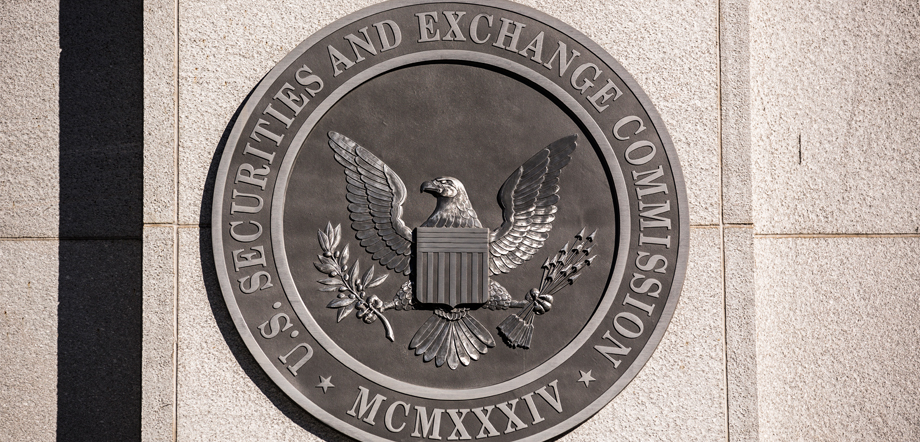Client Alerts
SEC Adopts New Rules Requiring Investment Advisers to Private Funds to Make Certain Disclosures and Avoid Certain Practices
September 2023

Client Alerts
SEC Adopts New Rules Requiring Investment Advisers to Private Funds to Make Certain Disclosures and Avoid Certain Practices
September 2023
NOTE: A panel of the U.S. Fifth Circuit Court of Appeals has struck down in their entirety the rule changes discussed below. On June 5, 2024, the Fifth Circuit ruled that the SEC exceeded its authority in adopting the rule changes because one statute the SEC relied on in adopting them relates to “retail customers” only and not to private funds and the other statute relied on relates to fraud and the SEC failed to show that the rule changes bear a close relationship to fraud.
We do not know at this time whether the SEC will ask the full Fifth Circuit to review the panel’s ruling or ask the U.S. Supreme Court to exercise discretion to hear the matter, so the validity of the rule changes is not yet finally determined.
The Securities and Exchange Commission (“SEC”) has adopted rule changes focusing on investment advisers to private funds, such as hedge funds, private equity funds, and venture capital funds. Despite the focus on advisers to private funds, one of the changes applies to all investment advisers registered under the Investment Advisers Act of 1940 (the “Act.”). Some of the changes affect only private fund advisers registered with the SEC, but some affect all investment advisers to private funds, regardless of registration. The dates by which an adviser must comply with the rule changes differ depending on the applicable rule, with the earliest becoming applicable on November 13, 2023. The adopting release, more than 600 pages, including the text of the rules, is available here.
The recent rulemaking makes the most significant changes to the rules for private fund advisers since advisers to private funds first became subject to SEC registration in 2012. The SEC explained the three primary factors that drove this rulemaking: to increase transparency, eliminate conflicts of interest, and improve governance mechanisms.
The material discussed below is complex, and this Client Alert is only a high-level summary from which a reader can determine whether an in-depth review is appropriate. The rule changes will affect each investment adviser based on its specific circumstances. If you believe that the rule changes will affect you, we recommend that you consult legal counsel knowledgeable about them.
Change Affecting All SEC-Registered Advisers
Under current rules, all advisers registered with the SEC are required to adopt and implement written policies and procedures reasonably designed to prevent violations of the Act and related rules. Those advisers are also required to review, no less frequently than annually, the adequacy of those policies and procedures and the effectiveness of their implementation. Beginning November 13, 2023, all SEC-registered advisers will be required not only to conduct that review but also to document the review in writing. The SEC believes written documentation of the annual review may help advisers better assess whether they have considered any compliance matters that arose during the previous year, any changes in the adviser’s or an affiliate’s business activities during the year, and any changes to the Act or other rules and regulations that may suggest a need to revise an adviser’s policies and procedures. Also, the availability of written documentation of the annual review should allow the SEC’s examination staff to determine if the adviser is regularly reviewing the adequacy of the adviser’s policies and procedures. We believe that a written record of the annual review may also serve as a roadmap for SEC examiners to identify areas that may merit special attention in the examination process.
We believe that it has always been best practice for an adviser to maintain a written record of its annual review, and we suspect that most registered advisers already do so. However, we assume from the SEC’s action on this point that more than a few examinations have found that an adviser has not maintained a written record. This rule change will affect those firms but may have little to no effect on firms already following what we consider to be best practice.
Changes Affecting Advisers to Private Funds, Regardless of Registration Status
Under the Act, a “private fund” is an issuer that would be an investment company under the Investment Company Act but for the exception for privately placed funds with not more than 100 owners (the “3(c)(1) Exception”) or the exception for privately placed funds sold only to “qualified purchasers” (the “3(c)(7) Exception”). Generally speaking, the definition of private fund covers any pooled vehicle that is in the business of investing in securities and relies on either the 3(c)(1) Exception or the 3(c)(7) Exception. The definition of private fund typically applies to hedge funds, private equity funds, and venture capital funds. The actual definition and its interpretation are complex and beyond the scope of this Client Alert. If you are in doubt about that scope, please consult legal counsel knowledgeable on the subject.
An investment adviser to a private fund may fall into any one of several categories. An adviser solely to one or more qualifying private funds that have less than $150 million in assets in the aggregate (an “Exempt Private Fund Adviser”) is not required to register under the Act. However, any adviser that advises funds with more than $100 million in assets (an “Exempt Reporting Adviser”) – although exempt from SEC registration – is required to file certain reports with the SEC. While some advisers may be exempt from registration with the SEC, they may be required to register with state securities authorities. Advisers relying on the family office exclusion are not considered advisers under the Act and are, therefore, not subject to even the rules that apply to exempt advisers.
Advisers not registered with the SEC may not routinely focus on the applicability of SEC rules, but in this case, it is vital that all advisers to private funds pay attention to the following aspects of the rule changes and that they review their documentation and practices in order to come into compliance by the required dates outlined below.
Under the new rules, all private fund advisers – including SEC-registered and Exempt Private Fund Advisers – will be restricted from engaging in certain activities. The restrictions apply unless private fund advisers provide specified disclosure to and, for certain restricted activities, obtain consent from investors.
The restricted activities can be summarized as follows:
- Reimbursing Expenses of Investigations. Charging or allocating to the private fund fees or expenses associated with a regulatory investigation of the adviser or its related persons by any governmental or regulatory authority;
- Reimbursing Regulatory and Compliance Fees. Charging or allocating to the private fund any regulatory or compliance fees or expenses or fees or expenses associated with an examination of the adviser or its related persons;
- Reducing Clawbacks for Taxes. Reducing the amount of an adviser’s clawback by actual, potential, or hypothetical taxes applicable to the adviser, its related persons, or their respective owners or interest holders;
- Charging Portfolio Expenses Other Than Pro rata. Charging or allocating fees and expenses related to a portfolio investment (or potential portfolio investment) on a non-pro rata basis when multiple private funds and other clients advised by the adviser or its related persons have invested (or propose to invest) in the same portfolio investment; and
- Borrowing from a Private Fund. Borrowing money, securities, or other private fund assets, or receiving a loan or an extension of credit, from a private fund client.
All private fund advisers are also prohibited from providing:
- Preferential redemption rights or selective disclosures that, in either case, the adviser expects to have a material, negative effect on other investors, subject to certain exceptions; and
- Other types of preferential treatment to any investor in a private fund, unless the adviser satisfies certain disclosure obligations.
Changes Affecting SEC-Registered Advisers to Private Funds
Currently there are no specific requirements for the information that private fund advisers must disclose to private fund investors about the funds’ investments, performance, or incurred fees and expenses. Disclosures of that type are currently governed by the so-called “antifraud provisions” of the federal securities laws and certain requirements of the marketing rule and private placement rules. The new rules require registered SEC-registered investment advisers to private funds to provide transparency to their investors regarding the fees and expenses and other terms of their relationship with private fund advisers and the performance of such private funds through certain mandated disclosures.
Quarterly Reporting. A new rule will require SEC-registered private fund advisers to provide quarterly statements to fund investors setting out certain information. The information required will depend in part on whether a fund is liquid or illiquid. “Illiquid fund” means a private fund that is not required to redeem interests upon an investor’s request and has limited opportunities, if any, for investors to withdraw before termination of the fund. This definition would apply to most private equity funds and venture capital funds, but not to most hedge funds. A “liquid fund” is any fund that is not an illiquid fund.
Each quarterly statement must present detailed information in tabular form about performance and expenses at both the fund level and the portfolio company level.
The quarterly statements for the first three fiscal quarters will be due within 45 days after the end of the reporting period; the quarterly statement for the fourth quarter will be due within 90 days after the end of the fiscal year.
Annual Audit. The new rules also require a registered private fund adviser to obtain an annual financial statement audit of each private fund it advises. The audited financial statements must be provided to investors within 120 days after the fiscal year end.
Adviser-Led Secondary Transactions. Sometimes a fund advised by an adviser will sell assets to another fund advised by the same adviser or investors will be given an opportunity to roll over investments from one fund into another fund advised by the same adviser. This presents a conflict of interest because the adviser has interests on both sides of the transaction and may receive benefits that do not inure to the benefit of either fund. The new rules define “adviser-led secondary transactions” as transactions initiated by the investment adviser or any of its related persons that offer the private fund’s investors the choice between selling all or a portion of their interests in the private fund and converting or exchanging all or a portion of their interests in the private fund for interests in another vehicle advised by the adviser or any of its related persons. This definition generally includes secondary transactions where a fund is selling one or more assets to another vehicle managed by the adviser, if investors have the option between obtaining liquidity and rolling all or a portion of their interests into the other vehicle. Examples of such transactions may include single asset transactions (e.g., a fund selling a single asset to a new vehicle managed by the adviser), strip sale transactions (e.g., a fund selling a portion of multiple assets to a new vehicle managed by the adviser), and full fund restructurings (e.g., a fund selling all of its assets to a new vehicle managed by the adviser). It is worth noting that the definition applies only if there is a liquidity option involved.
Under the new rules, an adviser that participates in an adviser-led secondary transaction must:
- Obtain, and distribute to investors in the private fund, a fairness opinion or valuation opinion from an independent opinion provider; and
- Prepare and distribute to investors in the private fund a written summary of any material business relationships the adviser or any of its related persons has or has had within the last two years with the independent opinion provider.
Compliance Dates
The compliance deadline depends on the rule and, in some cases, the amount of assets under management by the adviser.
The requirement to have a written record of the annual compliance review is November 13, 2023.
The compliance dates for some of the other rules depend on whether an adviser has $1.5 billion or more in private funds assets under management (“Larger Private Fund Advisers”) or has less than $1.5 billion in private funds assets (“Smaller Private Fund Advisers”). Those compliance dates are either September 14, 2024 or March 14, 2025. The new rules provide legacy status under the preferential treatment rule (which prohibits advisers from providing certain preferential redemption rights and information about portfolio holdings) and for the aspects of the restricted activities rule that require investor consent, which restrict an adviser from borrowing from a private fund and from charging for certain investigation fees and expenses.
Next Steps
We anticipate that some aspects of the new rules may be challenged in court, but the likelihood of needing to comply is high enough that advisers should now begin to analyze how they will be classified under the new rules for certain purposes and what steps will be necessary to come into compliance.
ADDITIONAL INFORMATION
For more information, please contact:
- Glenn E. Morrical | 216.696.3431 | glenn.morrical@tuckerellis.com
- Robert M. Loesch | 216.696.5916 | robert.loesch@tuckerellis.com
- Kristen A. Baracy | 213.430.3603 | kristen.baracy@tuckerellis.com
- Peter A. Rome | 216.696.4893 | peter.rome@tuckerellis.com
This Client Alert has been prepared by Tucker Ellis LLP for the use of our clients. Although prepared by professionals, it should not be used as a substitute for legal counseling in specific situations. Readers should not act upon the information contained herein without professional guidance.

